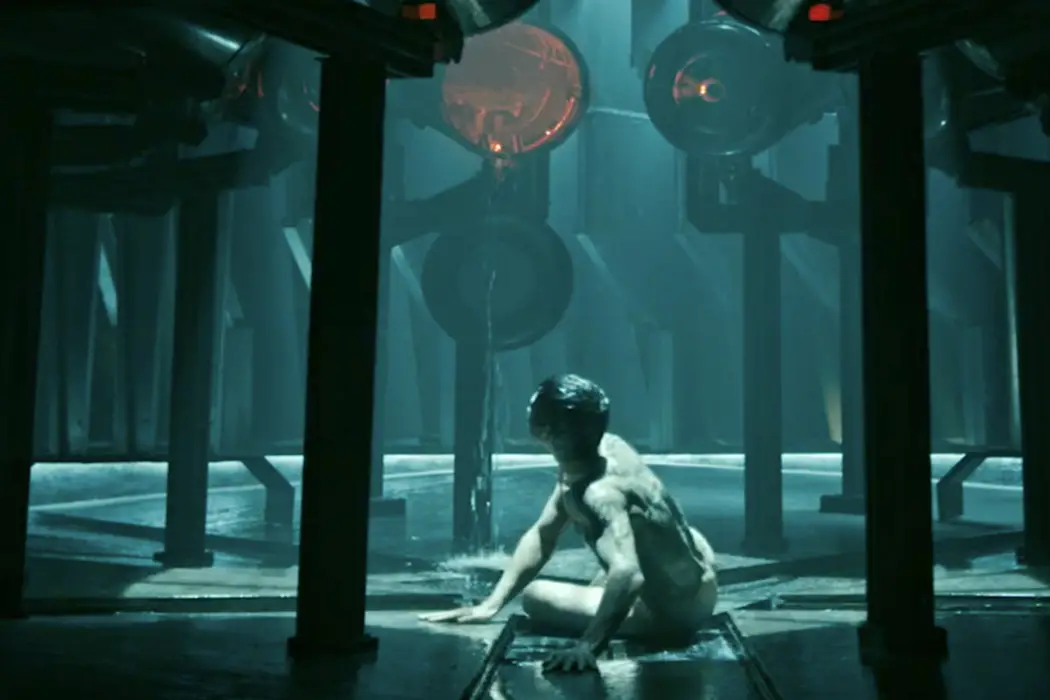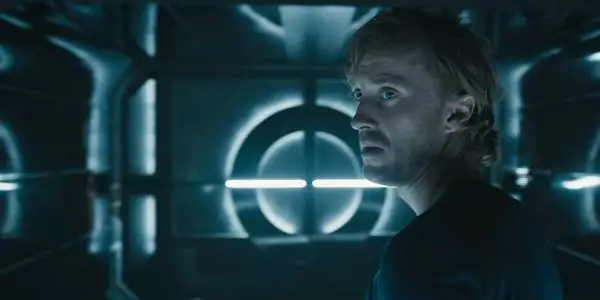ORIGIN (S1E1) “Pilot”: Lost, In Space

Alex is a 28 year-old West Australian who has a…
Earlier this year, YouTube Premium (formerly named YouTube Red) finally made its first major mark in this current ‘golden age’ of television with the Karate Kid sequel series Cobra Kai, a self-reflexive comedy that showed that sometimes, decades-late revisits to classic cinematic landmarks can actually work (coming off the heels of the similarly-successful Ash VS Evil Dead). Brushing off their reputation as simply being a way to remove ads before videos and a place for more Logan Paul content, YouTube’s streaming service has started to really sink some big money to build upon this momentum.
Matching Netflix’s lavish bankrolling of original content from major Hollywood creators, YouTube’s latest series, Origin, sees Paul W.S. Anderson, the man behind the Resident Evil film franchise (and the upcoming Monster Hunter adaptation) has been tasked to make what is essentially another version of Lost in Space, or more appropriately, judging by its sci-fi themes and sense of secrecy – Lost, in Space.
Lost On Both Sides
Duplicating almost exactly the formula and structure of the popular CW series The 100, Paul W.S. Anderson’s subpar sci-fi pastiche is content to create a new television series from merely patch-working elements from every foundational science fiction story of the past 40 years, even down to borrowing from his own fleeting contributions to the genre. This whole review could just be a systemic list of every narrative beat, describing them in the style of “it’s exactly like that bit in [insert movie here]”. I won’t list them all, but this is basically Alien from the man who gave us Alien VS Predator, which should pretty much say everything.

Thankfully, the pilot episode kicks off with a bang as Shun (Sen Mitsuji) slides out of hypersleep, given a rude awakening as he violently hits the deck of the Origin spaceship’s sleeping chambers as it glides through space. This rebirth imagery (matched with the name of the ship) immediately recalls The Matrix, and this is when the parade of imitations begins (I think this is the first pop culture property to actively replicate Passengers, the failed Jennifer Lawrence/Chris Pratt vehicle). Stranded thousands of miles away from Earth, Shun attempts to discover why he’s been awoken so early, years before reaching the distant habitable planet that this particular spacecraft is navigated towards (luckily there is no predictable amnesia subplot to deal with).
Finding an empty spacecraft devoid of any people or personality, it’s immediately clear that something has gone horribly wrong. It’s not long before Shun finds an equally confused wanderer Lana (Natalia Tena), followed by a number of other passengers of mixed race, gender and age, all united by the central question of where everyone else went and why. The mostly unknown but superlative cast serve the material well, with the most recognisable face being that of Tom Felton, whose shaggy mane and bloodshot eyes makes him look like Draco’s downed one too many butterbeers before hopping onboard the Origin.
This Ain’t Pandorum
The mood that is set is one of mystery, as from the moment that our full group of evasive strangers finally assemble, there is an air of subliminal unease and simmering tension, evident in the sense of mistrust between every personal interaction and clipped conversation. Planted among these characters is the idea that one of them is not who they seem, a seed that is sure to germinate over the series’ run. There is no simple dichotomy between dark and light or black and white, as these stranded passengers exist in the in-between. It’s a morally ambiguous area that could be best characterised as grey, an appropriate colour when describing the general look of the ship’s interior, a vague shade that makes the upcoming bloodshed even more noticeable.

It’s almost ironic that the characters are so unfamiliar with themselves and their surroundings, because us the audience, is wholly familiar with what’s going on. Anderson has obviously watched and studied Ridley Scott’s work, as well as sci-fi practitioners such as the Wachowski’s and James Cameron, but he’s seemingly never been able to replicate their inherent creativity and talent. But this is no surprise, as Anderson’s always been a B-Movie director working with A-Level resources, a disconnect seen through his consistent lack of subtlety, reliance on worn formulas and clichés, and never really transcending the basic banality of the scripts he works with (this time scribed by newcomer Mika Watkins).
Running From Your Demons
As more clues are gathered, the episode transitions from a basic sci-fi thriller into a more appealing body horror escapade, the first manifestation of which is in the pre-credit final reveal, one that suggests that these discordant strangers might not be the only beings stalking the stark hallways. Balancing the sci-fi mystery is a series of neon-lit flashbacks to Shun’s past in Japan and how his career of being a cold-blooded Yakuza assassin finally caught up with him.
After his policeman brother offers to help him board the Origin in order to wipe his large criminal record (a proposition which is introduced in another Matrix-like simulation, including its own Oracle knock-off), tragedy occurs, leaving the troubled protagonist all alone, in more ways than one. These brief windows into the past are doled out suitably enough and are visually arresting to a fault, but the blatant Blade Runner influence feels lazy, and is sure to make any die-hard sci-fi fan roll their eyes in irritation.

It’s not all bad tho, as the violence in Origin, which may be too much for younger viewers, is refreshingly graphic, harking back to Anderson’s only really beloved work, the cult classic Event Horizon, whose DNA is well-weaved throughout the explicit aesthetics (there’s a sly wink when one character remarks that he “doesn’t believe in hell”). With the currently dominating young adult series (Riverdale, Once Upon A Time, etc.) often sanitised of any real brutality to please television censors, it’s nice to have an unfiltered and uncut approach to this material, one which truly leaves nothing to the imagination. This supplements the show’s dominant visual element of darkness quite well; seen in the vacuum of space that surrounds the cast to the blood-splattered corridors of the forgotten spacecraft, down to even the backstories of each of these characters, who have individually tried to escape their own personal demons only to be confronted with literal ones.
Origin: Conclusion
Paul W. S. Anderson, for all of his flaws, has always worked best when limited to claustrophobic locations, whether it be the underground laboratories in Resident Evil, the bowels of Hell in Event Horizon, the Antarctic mining sites of Alien VS Predator and now the radiant space chambers of Origin.
Unfortunately, despite Origin’s good intentions and mysterious manner, it’s simply too derivative and absent of any originality to really recommend an immediate watch, especially with the large number of new series hitting broadcast television, streaming services and websites every week. In a culture with too much to pick from, this series just doesn’t stand out from the rest.
What did you think of YouTube Premium’s latest series? Let us know your thoughts in the comments below!
Does content like this matter to you?
Become a Member and support film journalism. Unlock access to all of Film Inquiry`s great articles. Join a community of like-minded readers who are passionate about cinema - get access to our private members Network, give back to independent filmmakers, and more.













